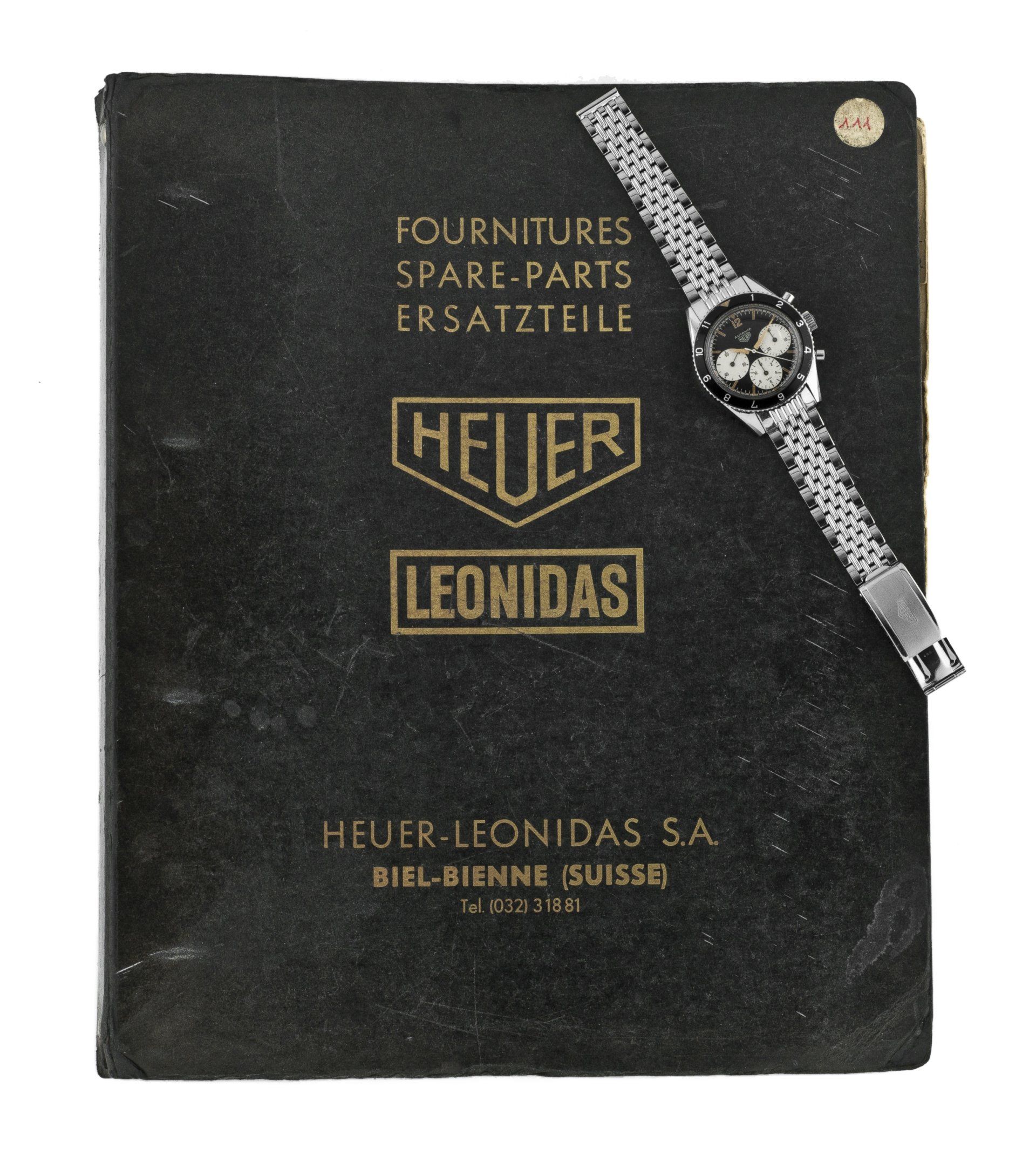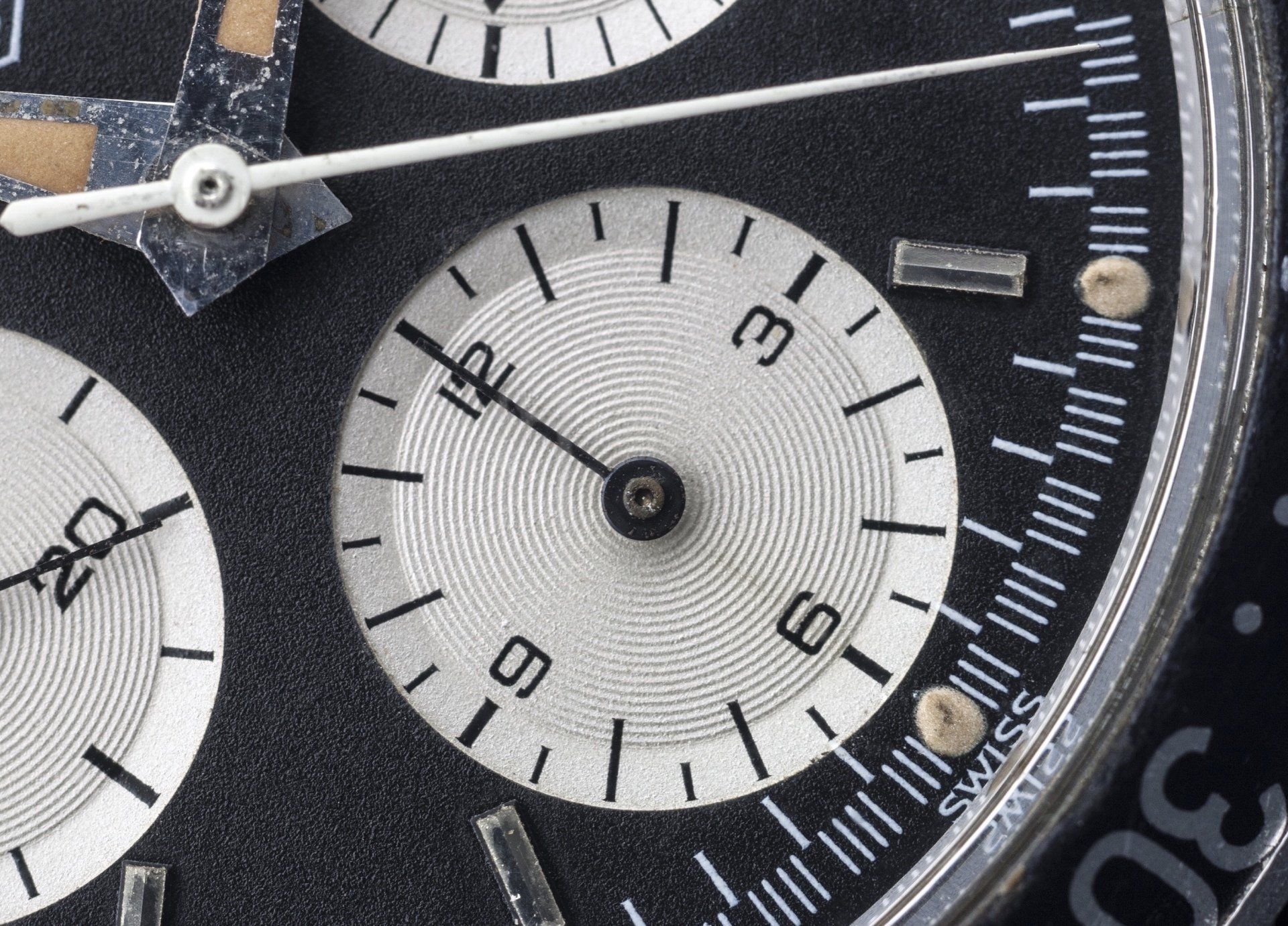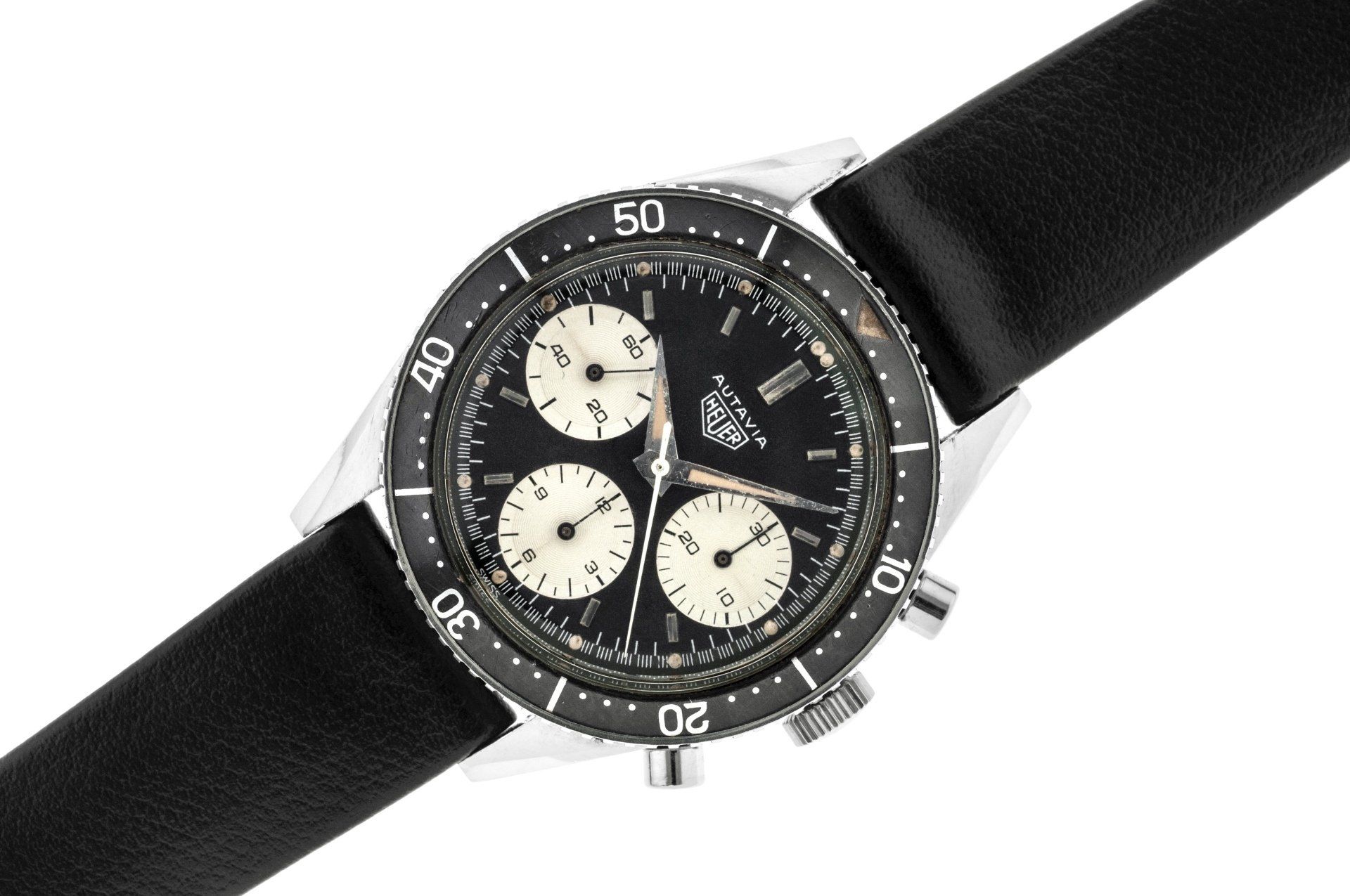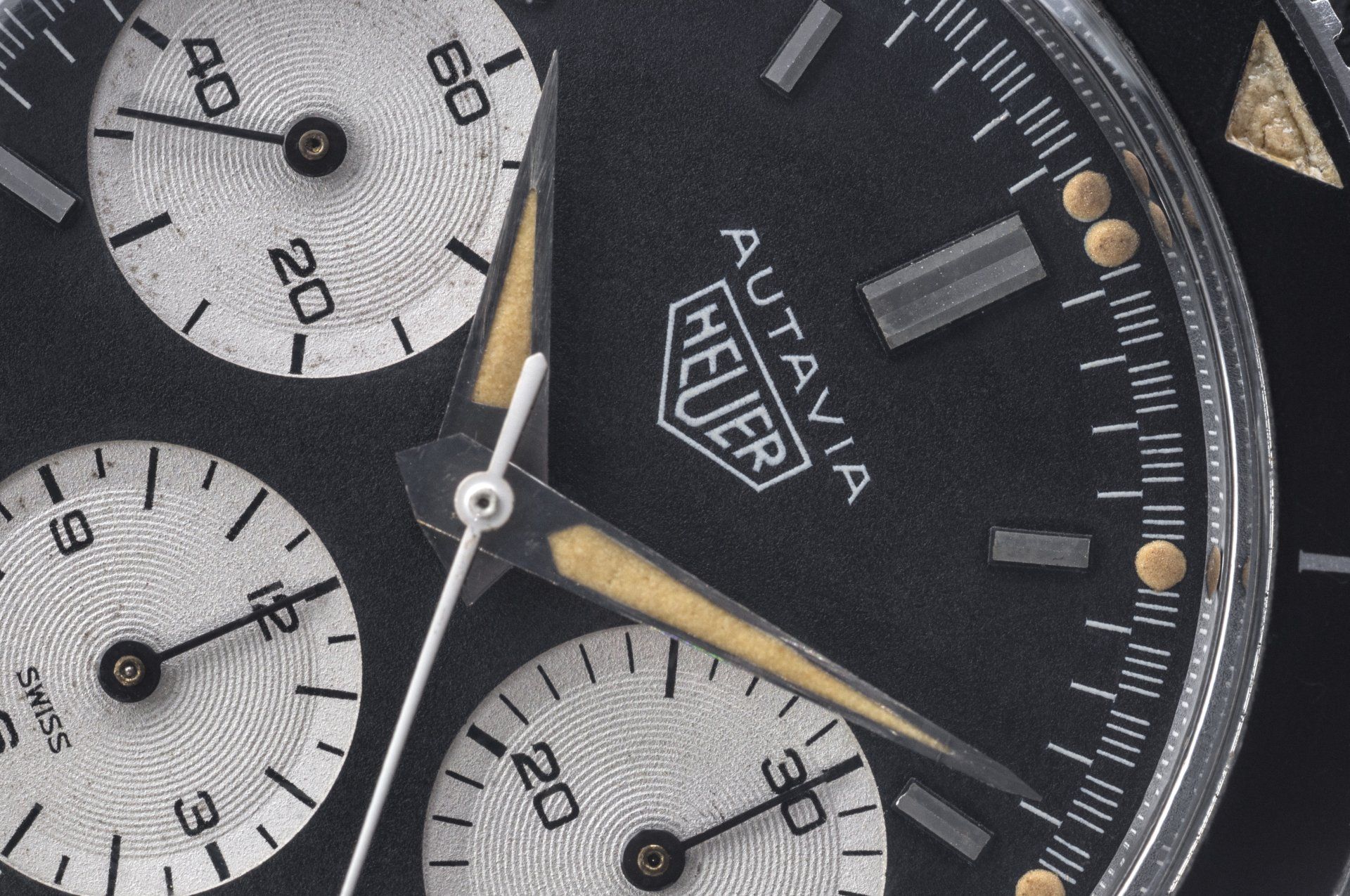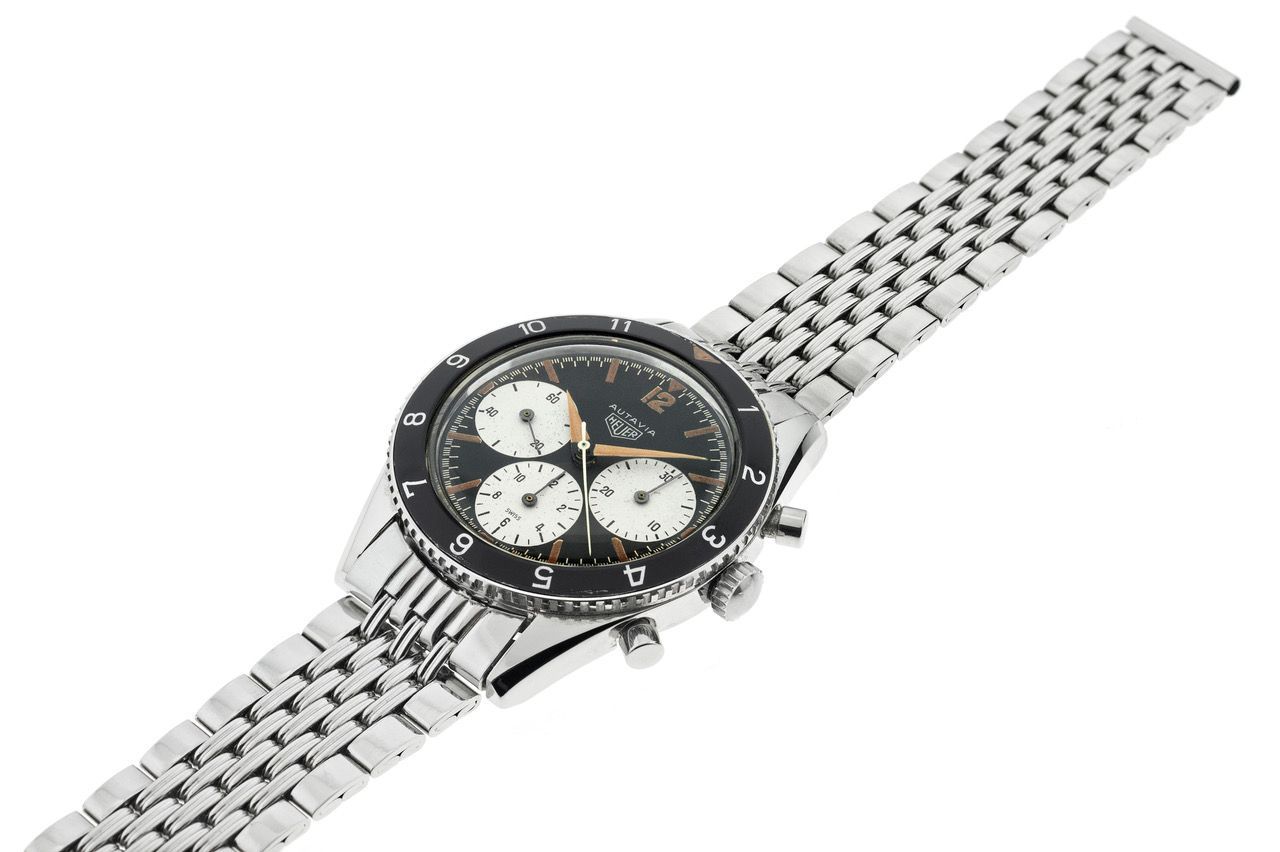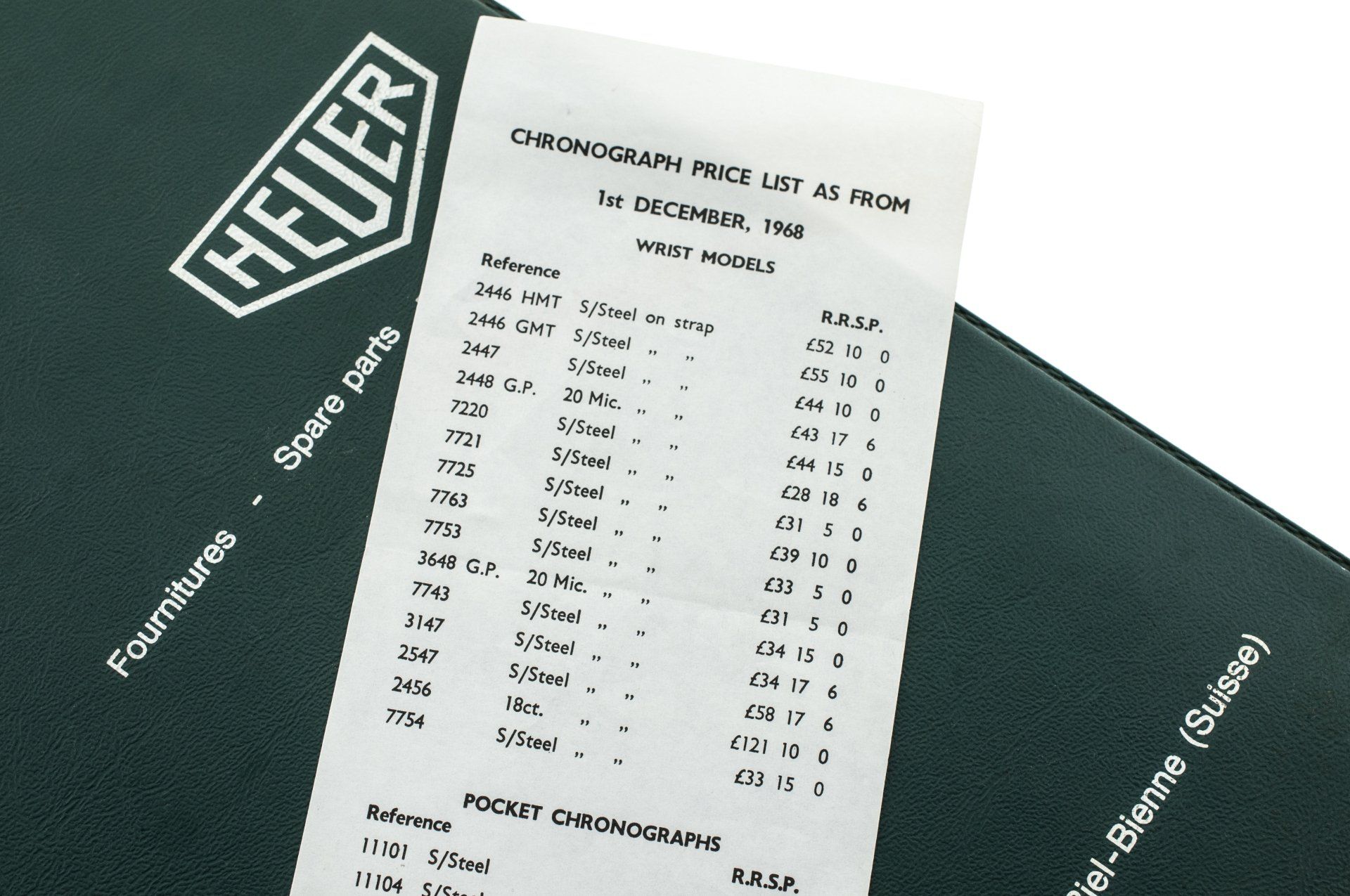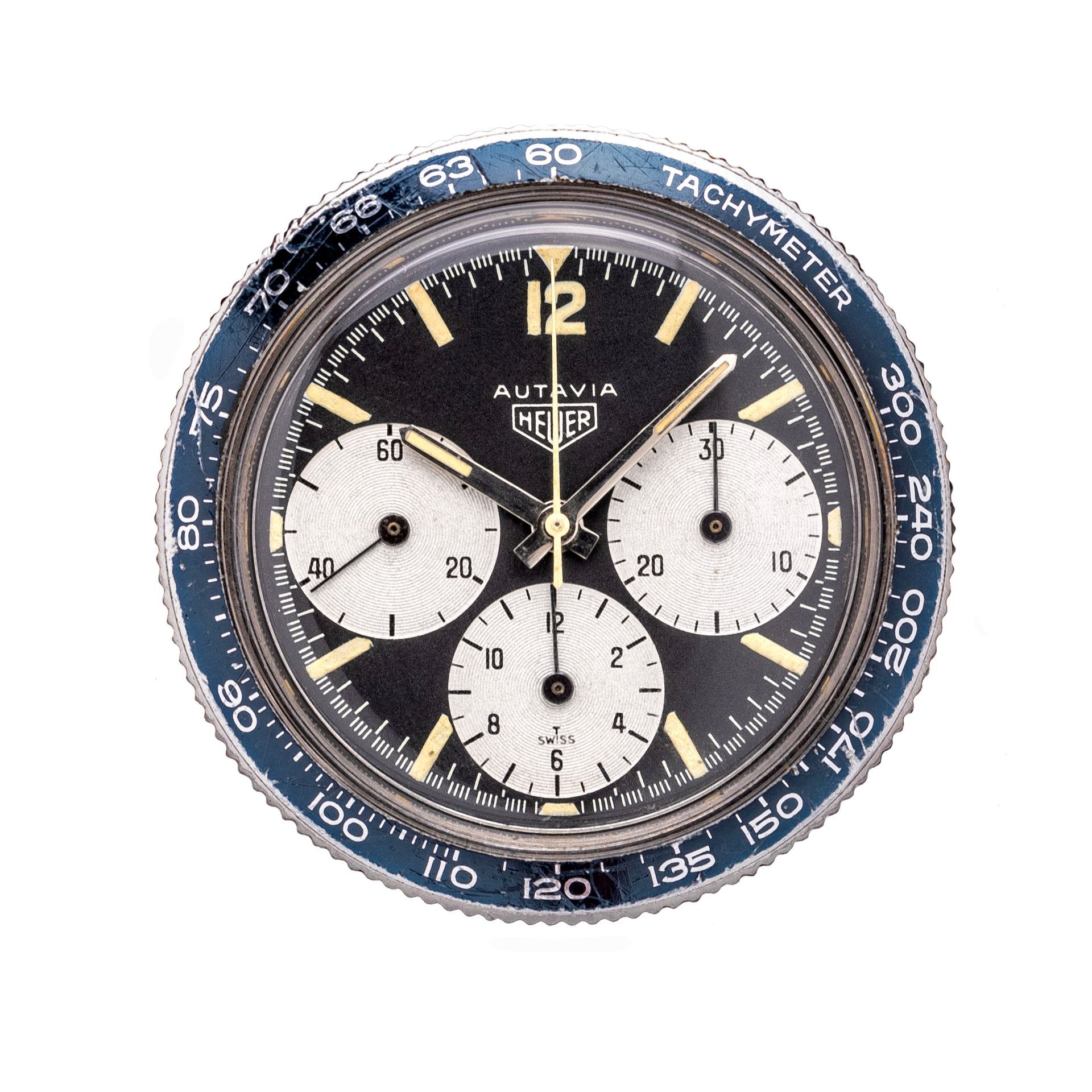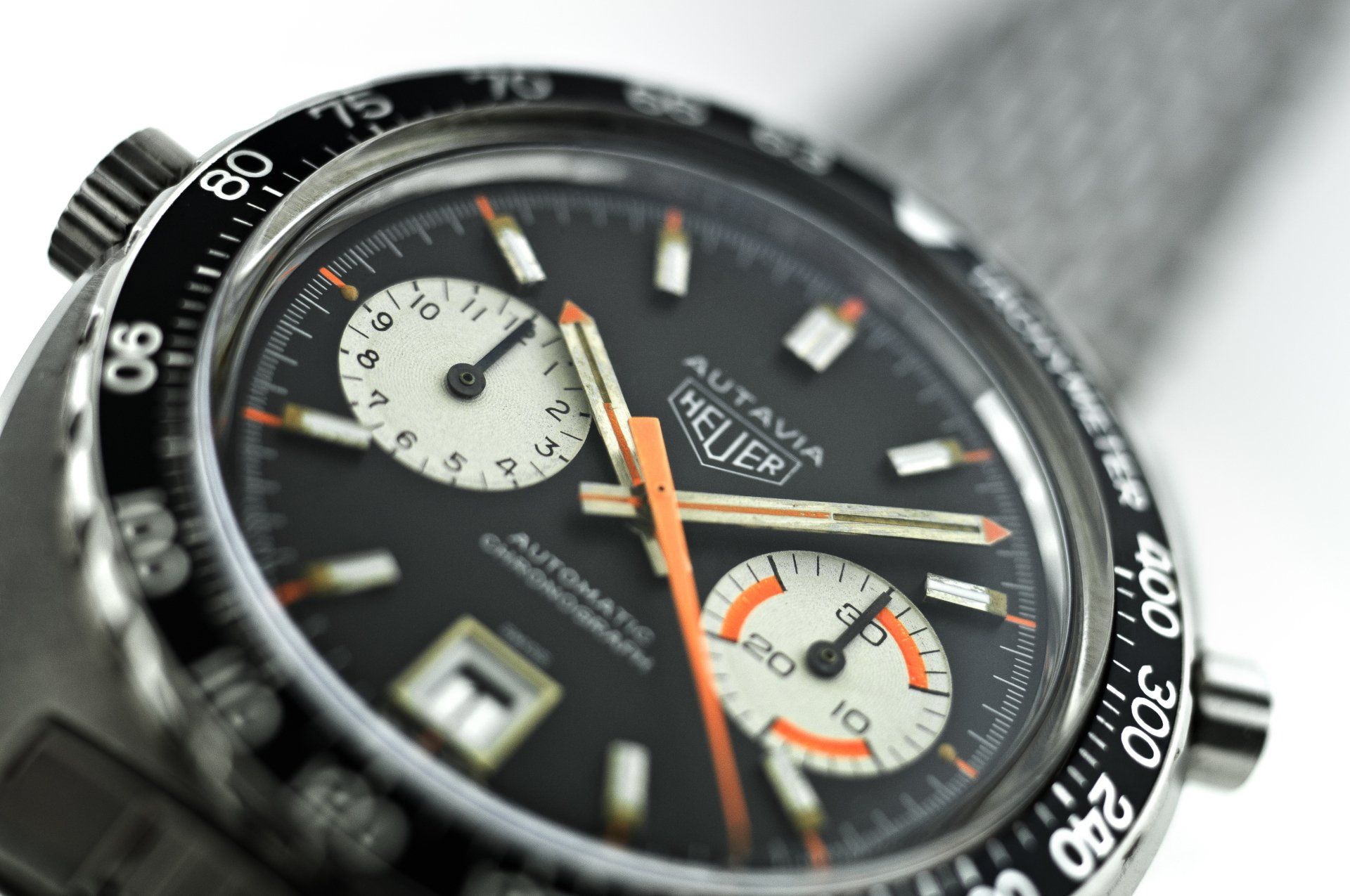The Autavia 2446 2nd Execution
Each of the screw back case Autavia executions from the 1960s has its own identity and this is one of my favourites...
The 2nd execution 2446 Autavia is sometimes forgotten. It was neither the first of the species, nor worn by a motor racing great like the 3rd execution "Jochen Rindt". However, the dial design is beautiful and, combined with the perfectly proportioned dauphine hands (which were narrower than the 1st execution), it makes for a stunning watch. The sub registers are smaller than the "Big Subs" before it, although still large per se by sub register standards from this period. The markers became metal, instead of the lume applied batons of the 1st execution and are shorter with dial lume plots applied in parallel which, when combined with the alternate hash marks of the outer minute ring, make for a very harmonious design. The bezel still featured the wide lume triangle version, and bezels without the lume piece would be from the Transitional 2446 that followed and fitted later. The Valjoux 72 initially used the same Ed Heuer signed bridge and case back as the 1st execution but, later in the run, we see Heuer Leonidas bridges and Ed Heuer case backs as the norm until the end of the execution.
This execution ran for a short period - introduced at some point during 1963 and running until early 1965 when the first examples of the Transitional 2446 came to market, I would imagine it was perhaps 18 months at most. There were two subtle dial batches: the most observed carried the "Swiss" marking in the bottom sub and the much rarer "Low Swiss" version with "Swiss" at the bottom of the dial, which account for only circa 15% of the observed total. The "Low Swiss" tends to be found in the early examples within the 52xxx-53xxx serial range. The serial allocation for this execution is fewer than 1000 units, so the 2nd execution is around three times rarer than the later 3rd execution Rindt and produced in similar numbers to the steel dauphine hand 1st execution (the all lume hand 1st execution is much rarer however). Additionally, Heuer used up a small batch of remaining dials later in 1966 in the 85xxx serial range. Such watches would appear in the thin bezel 3rd execution Rindt case, with a variety of hands. This batch had the Radium removed and Tritium applied and were signed "Swiss T" and are considered less desirable/collectible; the overall design doesn't work as well without the earlier features.
Values for this version of the Autavia have been very stable over the past five years, although it is one of those watches that is seldom seen, let alone in the very best condition. Autavias by and large were worn as serious tool watches in much the same way as the Omega Speedmaster, in contrast to watches like the Rolex Daytona that were much more likely to be reserved as "dress" watches or kept in the safe ;). As a result of this wear, mint condition 2nd executions are extremely thin on the ground and the difference in values between the best and an example that has led a hard life is significant. They range between £10000 for a poor example to £30000+, with values for the Tritium thin bezel batch worth notably less.
To read more about the most Heuer Autavia 1962-85 chronographs click on the link below to preview the Heuer Autavia book, filled with beautiful photographs and important detailed collector info.
Note: Please do not reproduce these images without permission.
